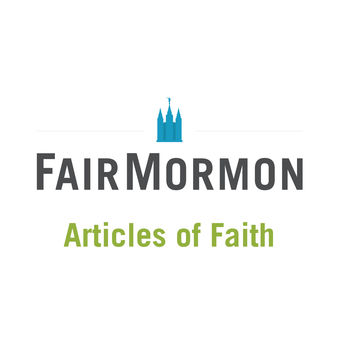
Articles of Faith – FairMormon Blog
Hosted by FairMormon
Interviews with LDS Scholars, Writers, Bloggers, and Personalities on their works contributed to scholarly journals, blogs, or other publication, in defense of the LDS Church and its Teachings
- 8 minutes 1 secondFair Issues 92: A short history of LDS Mesoamerican scholars
 In this installment brother Ash relates the history of Dr. M. Wells Jakeman and Thomas Stuart Ferguson along with the work done by John L. Sorenson whose work was published in the 1984 Ensign.
In this installment brother Ash relates the history of Dr. M. Wells Jakeman and Thomas Stuart Ferguson along with the work done by John L. Sorenson whose work was published in the 1984 Ensign.The full text of this article can be found at Deseret News online.
Brother Ash is author of the book Shaken Faith Syndrome: Strengthening One’s Testimony in the Face of Criticism and Doubt, as well as the book, of Faith and Reason: 80 Evidences Supporting the Prophet Joseph Smith. Both books are available for purchase online through the FairMormon Bookstore. Tell your friends about the Mormon Fair-Cast. Share a link on your Facebook page and help increase the popularity of the Mormon Fair-Cast by subscribing to this podcast in iTunes, and by rating it and writing a review.
The views and opinions expressed in the podcast may not reflect those of the Church of Jesus Christ of Latter-day Saints or that of FairMormon
The post Fair Issues 92: A short history of LDS Mesoamerican scholars appeared first on FAIR.
2 August 2015, 2:00 pm - 33 minutes 42 secondsArticles of Faith – Sustaining the Brethren – Interview with Duane Boyce
 Duane Boyce received his academic training in psychology, philosophy, and the clinical treatment of families. He received a PhD from Brigham Young University and conducted his postdoctoral study in developmental psychology at Harvard University. He was a member of the Moral Studies Group at Brigham Young University (BYU) and served on the faculty there before becoming vice president of a steel company headquartered in St. Louis, Missouri. He is a founding partner of the Arbinger Institute, a worldwide management consulting and educational firm, and is the coauthor of four books. He has published academic essays on scriptural topics in BYU Studies, The FARMS Review, Religious Educator, and the Journal of the Book of Mormon and Other Restoration Scripture. He is also the author of the book, Even Unto Bloodshed: A Latter-day Saint Perspective on War (Kofford, 2015). Among other callings, he has served as a bishop and a stake president. He is the author of an article in The Interpreter entitled, “Sustaining the Brethren.”
Duane Boyce received his academic training in psychology, philosophy, and the clinical treatment of families. He received a PhD from Brigham Young University and conducted his postdoctoral study in developmental psychology at Harvard University. He was a member of the Moral Studies Group at Brigham Young University (BYU) and served on the faculty there before becoming vice president of a steel company headquartered in St. Louis, Missouri. He is a founding partner of the Arbinger Institute, a worldwide management consulting and educational firm, and is the coauthor of four books. He has published academic essays on scriptural topics in BYU Studies, The FARMS Review, Religious Educator, and the Journal of the Book of Mormon and Other Restoration Scripture. He is also the author of the book, Even Unto Bloodshed: A Latter-day Saint Perspective on War (Kofford, 2015). Among other callings, he has served as a bishop and a stake president. He is the author of an article in The Interpreter entitled, “Sustaining the Brethren.”Questions addressed in this interview:
In your article you call sustaining the brethren a “vital topic.” What about sustaining the brethren is vital?
This is a part of the making and keeping of sacred covenants within the church. Is there a distinction between sustaining the brethren, and sustaining our local leaders as it relates to these covenants?
When we raise our right arm to the square, is that a sort of covenant renewal? Almost sacramental in that regard?
Your article sets up an interesting paradigm where you discuss the differences between God’s character and humankind’s character and the vast differences that currently rest in chasm between the two. Could you please lay out that foundation for the rest of our discussion on sustaining the brethren?
For some this may sound a little like a forwarding of the “sheep” mentality, we should just do what they leaders tell us because God is telling them, and God is smarter, therefore let’s just be sheep to what they say. I don’t think that is what you are saying, but I can see how that position would be the conclusion some could come to with this paradigm. How would you respond to that position?
When it comes to sustaining the brethren, what is the difference (as you see it) between following the words of the combined Quorum of the Twelve and the First Presidency, as opposed to statements made by individuals within those council’s?
I want to now address some common criticisms that come up with respect to sustaining the brethren, and have you offer a few approaches to these criticisms:
There are waves of discord, disagreement, or discontent that seem to crash against the Church at different times and in slightly different ways. One that I have observed over the past five to seven years or so, is the idea that is clothed in the notion that the general church membership has a role or a place to be an advocate of systemic change to doctrines or practices in the church—and that this perspective allows a person to remain in a faithful position. How does that reconcile with the concepts that you present in your article on sustaining the brethren? Can one be an advocate for systemic change, and sustain the brethren at the same time?
There is a quote that you give from Elder Dallin H. Oaks that I love. It is an interesting perspective because critics of this idea of sustaining brethren at all, or even those who find it difficult to place their faith in the hands of leaders, forget that we are all operating in mortal capacities. The quote reads: “Revelations from God … are not constant. We believe in continuing revelation, not continuous revelation. We are often left to work out problems without the dictation or specific direction of the Spirit. That is part of the experience we must have in mortality. Fortunately, we are never out of our Savior’s sight, and if our judgment leads us into actions beyond the limits of what is permissible and if we are listening … the Lord will restrain us by the promptings of His Spirit.” How does this quote lay a solid foundation for sustaining the brethren while also giving room for their mortal fallibility?
Sustaining the brethren seems to be a great deal about the issue of trust. We are placing our trust in individuals who are hopefully placing their trust in God. Because we are dealing with eternal salvation, this trust is not an issue that should be taken lightly. So, how then do you, in your article make recommendations on how to navigate this issue moving forward?
Duane Boyce is the author of an article in The Interpreter entitled, “Sustaining the Brethren” as well as the book, Even Unto Bloodshed: A Latter-day Saint Perspective on War (Kofford, 2015).
The post Articles of Faith – Sustaining the Brethren – Interview with Duane Boyce appeared first on FAIR.
14 July 2015, 3:18 pm - 34 minutes 14 secondsArticles of Faith: Inside the Mind of an Inactive Member
 Laurie White is a mother of four and grandmother of ten in Sacramento, California.She often writes as Tudie Rose. She writes a weekly column for LDS Blogs at http://ldsblogs.com/.
Laurie White is a mother of four and grandmother of ten in Sacramento, California.She often writes as Tudie Rose. She writes a weekly column for LDS Blogs at http://ldsblogs.com/.She blogs as Laurie White about spiritual things (Thoroughly Mormon) at http://thoroughlymormon.wordpress.com/ She has written articles for Meridian Magazine and Familius. She comes on today to talk about an article she wrote for the Mormon Women Stand blog entitled, “Inside the Mind of An Inactive Member.”
The post Articles of Faith: Inside the Mind of an Inactive Member appeared first on FAIR.
15 June 2015, 11:00 am - 23 minutes 32 secondsArticles of Faith Podcast: Jeffrey Thayne – Some Thoughts on Discipleship and “Staying Mormon”
 Jeffrey Thayne grew up in Elk Ridge, Utah, collecting bugs in the woodland hills behind his home. He has wanted to be a physicist, a detective, a entomologist, a cartographer, an explorer, a linguist, an astronaut, an architect, a writer, a teacher, a video-game programmer, and all of the above. He therefore graduated from BYU in April 2009 with a degree in psychology, a master’s degree in psychology at BYU, and is finishing a PhD in Instructional Technology and Learning Sciences at Utah State University. Jeff is the author of the blog article on Millennial Star.org entitled: Some Thoughts on Discipleship and “Staying Mormon”.
Jeffrey Thayne grew up in Elk Ridge, Utah, collecting bugs in the woodland hills behind his home. He has wanted to be a physicist, a detective, a entomologist, a cartographer, an explorer, a linguist, an astronaut, an architect, a writer, a teacher, a video-game programmer, and all of the above. He therefore graduated from BYU in April 2009 with a degree in psychology, a master’s degree in psychology at BYU, and is finishing a PhD in Instructional Technology and Learning Sciences at Utah State University. Jeff is the author of the blog article on Millennial Star.org entitled: Some Thoughts on Discipleship and “Staying Mormon”.Questions addressed in this episode:
You often write responses to current events, or even criticisms that are leveled against the church. In your recent article on MillennialStar, you respond to an article entitled How to Stay Mormon When You’re Tired of Mormons. What is the article and how would you classify it?
Who, as you see it, is the audience for that original article?
Doubt. So many different ways to look at, and approach doubt when it comes to the LDS Church, its teachings and its culture. How do you address the subject of doubt in this article?
I got the impression that you were hoping to speak to the same audience as the original article but offer a different approach to the issues and challenges this audience may face. You give three suggestions (other than the title) to help people feel more at home in the church, as you put it “not strangers, or foreigners.”
1. Remember that Christ is the cornerstone of our faith.
2. Find opportunities to communicate with God.
3. Remember the covenants we have made with God.
It’s hard to want to be committed to covenants that have been made to a person you don’t like or agree with. It’s hard to want to be someone’s friend when you feel like there are problems with your friendship. It is hard to want to be married when you don’t love or agree with the person. So #3 seems like a really hard thing to wrap your head around when you are going through what many refer to as doubts. How do covenants help someone over come doubt?
In the article you make the assertion that there are two dichotomous paradigms that seem to pervade the LDS experience. Expressive Individualism, and Discipleship. What are these two things and how do they relate?
You also introduce an idea I had not really spent much time considering with respect to the general view of the Church, its role in our spirituality, and our relationship with it, by putting forward that idea of viewing church as a consumer? What do you mean by that and how does it relate?
Jeffrey Thayne is the author of several blog articles at Millennial Star.org.
The post Articles of Faith Podcast: Jeffrey Thayne – Some Thoughts on Discipleship and “Staying Mormon” appeared first on FAIR.
26 May 2015, 4:08 pm - 1 hour 20 minutesBest of FairMormon: April 2015 General Conference – An Apologetic Review (Part 2 – Sunday Sessions & Women’s Session)
April 2015 General Conference featured presenters from the presiding quorums and general officers of The Church of Jesus Christ of Latter-day Saints. In this podcast, volunteers from FairMormon discuss the issues and quotes from selected talks through an apologetic perspective.
Panelists in this episode are Steve Densley, and Cassandra Hedelius (via telephone); moderated by Nick Galieti. In this episode, Part 2, the panel reviews the General Conference sessions that were broadcast on Sunday Morning, Sunday Afternoon, and The General Women’s Session.
Click here for a listing of all the General Conference Presentations from LDS.org
Part 1 of the 2015 FairMormon General Conference Review click here.
The post Best of FairMormon: April 2015 General Conference – An Apologetic Review (Part 2 – Sunday Sessions & Women’s Session) appeared first on FAIR.
20 April 2015, 4:59 am - 33 minutes 35 secondsArticles of Faith Podcast: Joseph Smith’s Polygamy – Interview with Brian and Laura Hales
Brian and Laura Harris Hales are the co-authors of Joseph Smith’s Polygamy: Toward a Better Understanding. Brian is the award-winning author of six books on polygamy, including the first three volumes in the Joseph Smith’s Polygamy series. Together they are the co-webmasters of JosephSmithsPolygamy.org and speak frequently about the history of early polygamy. Laura is an active blogger and editor of an upcoming anthology on 16 topics of historical and theological significance to members of the LDS Church (BYU Religious Studies Center, early 2016). Laura and Brian, combined, have nine children.
Questions addressed in the interview:
How did you both work on this, what was the work contributed from each of you?
There are three sources of information that you use for information on Joseph Smith’s polygamy and basically the earliest teachings and implementations of polygamy. What are those three main sources?
Let’s start out with theological polygamy, what is the theological reasons for the practice of polygamy?
What is the difference (if there is a difference) between plural marriage and polygamy and what does that distinction matter?
You also make the distinction that there were times where plural marriage was permitted, and other times it was commanded. What are the examples of those differences?
With an issues such as Race and the Priesthood, there are many who distance themselves from the idea that God commanded the priesthood ban in the first place. Is there such a position when it comes to polygamy? Is there any merit to a dismissal of the practice as having no divine origin?
One of the conflicts that seems to catch people is the concept of Plurality of Husbands or Polyandry. There is a couple sections of your book that discusses this particular issue. What is the main question that people have here, and in what way does your text resolve questions about polyandry.
Emma Smith, Joseph Smith’s first and primary wife, had a role in this story that is heart wrenching at times, and can leave a person feeling conflicted. What was Emma’s view of polygamy?
Explain the Mini-biographies on Joseph Smith’s wives.
To purchase a copy of Joseph Smith’s Polygamy: Toward a Better Understanding, click here.
The post Articles of Faith Podcast: Joseph Smith’s Polygamy – Interview with Brian and Laura Hales appeared first on FAIR.
6 April 2015, 10:00 pm - 38 minutes 11 secondsArticles of Faith Podcast: Syntax and Book of Mormon Authorship – Interview with Stanford Carmack
 Stanford Carmack has a linguistics and a law degree from Stanford University, as well as a doctorate in Hispanic Languages and Literature from the University of California, Santa Barbara, specializing in historical syntax. In the past he has had articles published on Georgian verb morphology and object–participle agreement in Old Spanish and Old Catalan. He currently researches Book of Mormon syntax as it relates to Early Modern English and contributes, by means of textual analysis, to volume 3 of Royal Skousen’s Book of Mormon critical text project.
Stanford Carmack has a linguistics and a law degree from Stanford University, as well as a doctorate in Hispanic Languages and Literature from the University of California, Santa Barbara, specializing in historical syntax. In the past he has had articles published on Georgian verb morphology and object–participle agreement in Old Spanish and Old Catalan. He currently researches Book of Mormon syntax as it relates to Early Modern English and contributes, by means of textual analysis, to volume 3 of Royal Skousen’s Book of Mormon critical text project.Articles referenced in this interview:
The Implications of Past-Tense Syntax in the Book of Mormon
A Look at Some “Nonstandard” Book of Mormon Grammar
What Command Syntax Tells Us About Book of Mormon Authorship
Questions addressed in this interview:
The work that you do feels like forensic work, like something a coroner is doing to look back on the evidence that is before them and come to certain conclusions about what took place. Like a coroner would be able to tell the difference in the type of cut on a body and come to some conclusion about the type of blade that was used, or the skill with which the individual that made the cut demonstrated in the wound, etc. You seem to have the ability to look at an ancient text and see more than simply a group of letters that form a word, but the skill and education of the person that used it, the origins of the word, and from that you can come to certain conclusions. Is that an appropriate comparison?
You have written three articles in The Interpreter, to date, I am sure there will be more to come, but they all have to do with this rich analysis of the grammar and syntax of the Book of Mormon text. There are some criticisms of the Book of Mormon text that have been used by critics for years, what are some of those criticisms?
Did your effort in this regard come from wanting to give answers to the critics, or did you want to find answers for yourself to the critics questions and figured you would share your findings with others?
In your most recent article you make the statement that “Syntax resists manipulation” Meaning what with respect to its use in Book of Mormon authorship?
Let’s start with the first one that you did entitled A Look at Some “Nonstandard” Book of Mormon Grammar.” What were your findings with respect to what specific criticisms?
The next article was “What Command Syntax Tells Us About Book of Mormon Authorship.” This paper focuses on the use of one verb, COMMAND. It might seem a bit pf an overstatment to some, but how can the use of one word contribute to so as to either condemn or vindicate the claims to divine authorship of the Book of Mormon?
Your latest article is a bit of a heavy read, but it is quite impressive in that regard. The article is entitled, “The Implications of Past-Tense Syntax in the Book of Mormon.” Here again is an analysis of the text with respect to assumptions that the Book of Mormon simply copies or borrows from Biblical Texts.
The post Articles of Faith Podcast: Syntax and Book of Mormon Authorship – Interview with Stanford Carmack appeared first on FAIR.
30 March 2015, 9:34 pm - 28 minutes 56 secondsArticles of Faith Podcast: In The Gospel, Faith Must Come First – Interview with Taylor Halverson
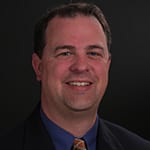 Bio: Dr. Taylor Halverson received a B.A. from Brigham Young University in Ancient Near Eastern Studies in 1997, an M.A. in Biblical Studies from Yale University in 2001 and an M.S. in Instructional Technology from Indiana University in 2004. He completed Ph.D.s in Instructional Technology and Judaism & Christianity in Antiquity—both from Indiana University in 2006.
Bio: Dr. Taylor Halverson received a B.A. from Brigham Young University in Ancient Near Eastern Studies in 1997, an M.A. in Biblical Studies from Yale University in 2001 and an M.S. in Instructional Technology from Indiana University in 2004. He completed Ph.D.s in Instructional Technology and Judaism & Christianity in Antiquity—both from Indiana University in 2006.Dr. Halverson currently works at BYU full-time at the Center for Teaching and Learning. He is also the founder and co-chair of the Creativity, Innovation, and Design group, acting associate director of the Rollins Center for Entrepreneurship and Technology, and has taught a variety of courses at BYU including: “Old Testament,” “Book of Mormon,” “History of Creativity,” “Innovation Lab: The Design Thinking Experience,” and “Illuminating the Scriptures: Designing Innovative Scripture Study Tools.” Dr. Halverson is a contributor to the popular LDS Bible Videos project and the LDS Scripture Citation Index site and a columnist for the Deseret News. He and his wife Lisa lead travel tours to Israel, the Mediterranean, and Mesoamerica.
Questions addressed in the interview:
In preparation for this interview I went to TaylorHalverson.com, and in reading over the many things you are involved in, various chair positions at BYU, a tour guide for LDS themed travel, writer of multiple text books, articles for various publications and media outlets, this may seem like a judgmental question, and it is not meant to be, but where do you find to study the scriptures, and give time to your own personal faith development?
You are multi-lingual, Spanish, Biblical Hebrew, Greek, and a slew of others considered secondary languages. How has learning and knowing multiple languages changed your approach to learning the scriptures?
The article you wrote for the Deseret News, addresses a challenge or at least a shift in approach that we have seen with the world at large, and that is an evidence first approach. Disbelieve until proven logically true. At first, it seems like this is a prudent approach, but you call it difficult if not outright outlandish. Could you expound on that conclusion?
This relates to an exchange you had while attending Yale as follows:
Yale student: Where is the original Book of Mormon today? Where are the gold plates?
Taylor: They are gone.
Yale student: What do you mean that the original plates are gone?
Taylor: When Joseph Smith completed the translation of the gold plates into the Book of Mormon, he returned the plates to the angel Moroni. So we no longer have access to them. All that remains is Joseph Smith’s translation of the plates.
Yale student: I mean no disrespect, but this sounds both incredible and convenient for the story of the Book of Mormon. (Remember that the word “incredible” means unbelievable.) We have no way of source checking Joseph Smith’s story because the plates he claims to have worked with are no longer available. How can anyone even believe Joseph Smith or the Book of Mormon?
Taylor: Great questions. I have several questions for you.
Yale student: Sure.
Taylor: Are you a Christian?
Yale student: Yes.
Taylor: Do you believe in the bodily resurrection of Jesus Christ?
Yale student: Of course. That is the fundamental foundation of Christianity! Without the belief in the bodily resurrection of Jesus Christ there is nothing for Christianity.
Taylor: OK, then show me Jesus’ body.
Yale student: (Pausing to think with dawning comprehension) Oh, I see.
Taylor: What is more implausible: That someone claims to have translated a book and now the original book is missing, or that a physically dead body is now alive again? Just as Christians throughout the centuries have exercised faith in the claim that Jesus Christ died and rose again, so too members of The Church of Jesus Christ of Latter-day Saints exercise faith in that original claim as well as in the claim that God has brought forth additional scriptural witnesses, such as the Book of Mormon, for the life and mission of Jesus Christ
Sometimes people find themselves in a faith crisis, not simply a position of unknowing something, but that they feel they know something that has caused some cognitive dissonance. How does faith apply to someone in this intellectually conflicted position?
The article title asserts that faith must come first, that it is a matter of approaching spiritual matters with faith first. What tends to be the end result if faith comes second, or third or somewhere down the line?
This idea that we wait to act till we have knowledge is the opposite of what you inject at the end of your article, “As we act in faith, our knowledge increases and our views enlarge.” What sorts of things can we ONLY learn through faith as opposed to traditional empirical learning models?
Taylor Halverson is the author of the article In the Gospel, Faith Must Come First published by the Deseret News.
The post Articles of Faith Podcast: In The Gospel, Faith Must Come First – Interview with Taylor Halverson appeared first on FAIR.
23 March 2015, 1:45 pm - 35 minutes 52 secondsArticles of Faith podcast: Big Ocean Women – Interview with Carolina Allen
 Carolina Allen is a Brazilian native and US immigrant. She is a 2nd generation member of the church. A Philosophy major from U of U. She is now happily married to Dr. Kawika Allen, a professor of counseling psychology at BYU.
Carolina Allen is a Brazilian native and US immigrant. She is a 2nd generation member of the church. A Philosophy major from U of U. She is now happily married to Dr. Kawika Allen, a professor of counseling psychology at BYU.Her UN bio stayed that she Speaks, English, Spanish, Portuguese. She has an interracial family with 5 kid. She Loves community and family, homeschooling, sports, the outdoors, and is a soccer player and avid Brazil fan. The bio concludes with stating that she is an activist and grass roots founder. In this episode Carolina talks about her organization Big Ocean Women and their efforts to be a voice for motherhood, her own brand and philosophy of feminism, and the defense of morality and traditional marriage on a world wide stage. For more information visit bigoceanwomen.com
The post Articles of Faith podcast: Big Ocean Women – Interview with Carolina Allen appeared first on FAIR.
2 March 2015, 3:57 pm - 21 minutes 15 secondsArticles of Faith – The Parable of Chesterton’s Fence – Cassandra Hedelius
 Cassandra S. Hedelius studied political science and mathematics at the University of Oklahoma and law at the University of Colorado. She is a bureaucrat by day, and by night a member of FairMormon, the Board of Editors at Interpreter: A Journal of Mormon Scripture, and a blogger at Meridian Expand. She lives in Maryland with her husband and cats.
Cassandra S. Hedelius studied political science and mathematics at the University of Oklahoma and law at the University of Colorado. She is a bureaucrat by day, and by night a member of FairMormon, the Board of Editors at Interpreter: A Journal of Mormon Scripture, and a blogger at Meridian Expand. She lives in Maryland with her husband and cats.Click here to read her article at Meridian Expand – The Parable of Chesterton’s Fence
The post Articles of Faith – The Parable of Chesterton’s Fence – Cassandra Hedelius appeared first on FAIR.
2 February 2015, 8:11 pm - 20 minutes 49 secondsArticles of Faith – In Argumentato Pietatis – Valerie Hudson
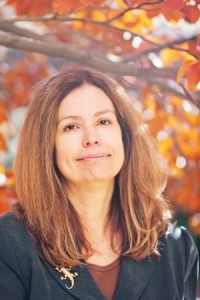 Dr. Valerie Hudson joined the faculty of Texas A&M University at the Bush School in 2012 as the George Bush Chair. She is considered an expert on international security and foreign policy analysis, she received her PhD in political science at The Ohio State University.
Dr. Valerie Hudson joined the faculty of Texas A&M University at the Bush School in 2012 as the George Bush Chair. She is considered an expert on international security and foreign policy analysis, she received her PhD in political science at The Ohio State University.In 2009, Foreign Policy named her one of the top 100 Most Influential Global Thinkers. Dr. Hudson developed a nation-by-nation database on women (http://womanstats.org) that triggered both academic and policy interest including use by both the US Senate Foreign Relations Committee and various agencies of the United Nations.
Valerie is one of the founders of the online Journal called Square Two found at Squaretwo.org and is on Articles of Faith to talk about her article at Square Two – Rectifying the Names: Reflections on “Womanhood and Language.”
Questions addressed in this podcast: (We apologize for the audio quality of the phone call.)
By way of introduction of our topic, I want to share a quote you gave from Confucius in your article:
“If language is not correct, then what is said is not what is meant; if what is said is not what is meant, then what must be done remains undone; if this remains undone, morals and art will deteriorate; if justice goes astray, the people will stand about in helpless confusion. Hence there must be no arbitrariness in what is said. This matters above everything.”With that being said, and in order to talk about your article we need to introduce, briefly, the article from Ralph Hancock entitled Eternal Womanhood and the Limits of Public Recognition as posted on Patheos. What is that article and how did it fertilize the article you wrote for Square Two?
What are some examples of these terms that come loaded with some baggage that doesn’t seem to do justice to LDS theology?
You state in the article that you wanted to create a wiki-dictionary of new terms- created by women—about experiences that are exclusive to feminine experiences. Why is that NOT happening?
Theme: Our people need to know that God wants them to be free—and what this means. Our people need to know that God is fair—and what this means. Our people need to know that even in the context of sexual difference, men and women stand as equals before God—and what this means.
In Argumentato Pietatis – You suggest using language to reclaim language. What is In Argumentato Pietatis, and how does this approach form your argument?
The post Articles of Faith – In Argumentato Pietatis – Valerie Hudson appeared first on FAIR.
27 January 2015, 4:27 pm - More Episodes? Get the App
Your feedback is valuable to us. Should you encounter any bugs, glitches, lack of functionality or other problems, please email us on [email protected] or join Moon.FM Telegram Group where you can talk directly to the dev team who are happy to answer any queries.
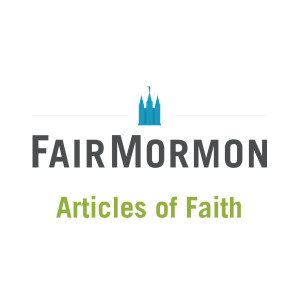


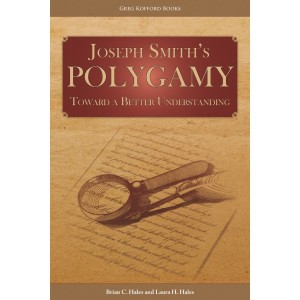
 Joseph Smith's Polygamy
Joseph Smith's Polygamy
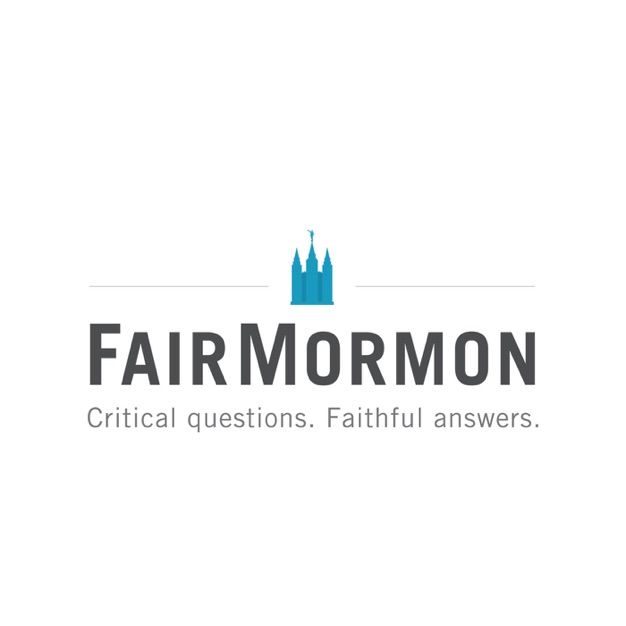 Mormon FAIR-Cast
Mormon FAIR-Cast
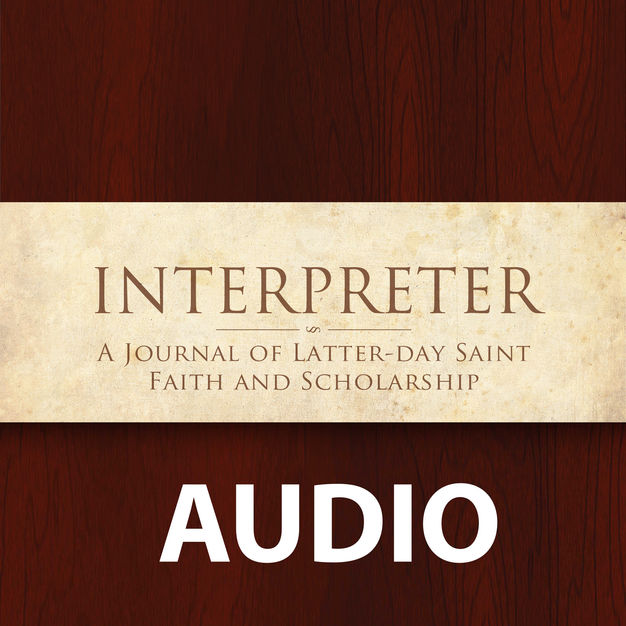 Audio podcast of the Interpreter Foundation
Audio podcast of the Interpreter Foundation
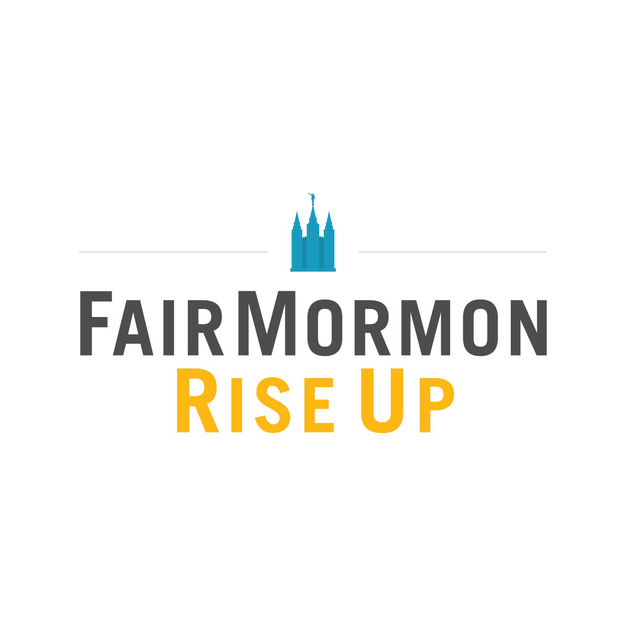 FairMormon
FairMormon
 FairMormon
FairMormon